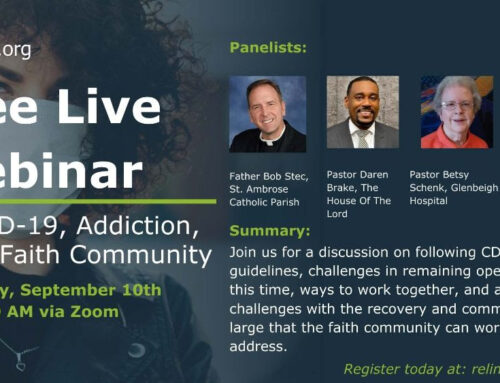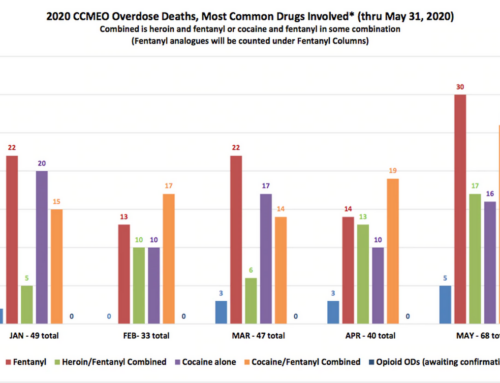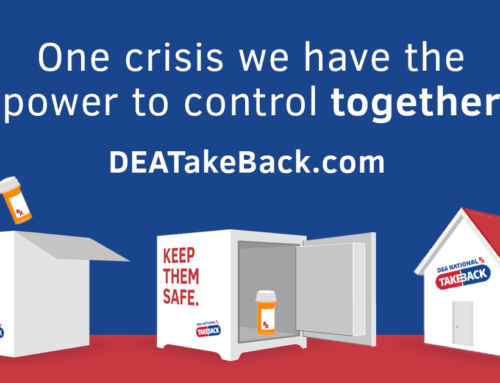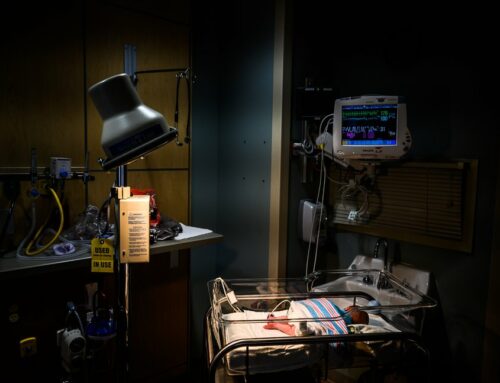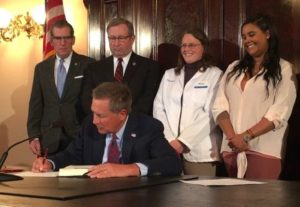 Original article from Cleveland.com
Original article from Cleveland.com
COLUMBUS, Ohio — Gov. John Kasich on Wednesday signed a bill tightening restrictions on prescription opioids and making addiction treatment easier to obtain.
Kasich praised the law as the next step in his administration’s efforts against a nationwide opioid abuse epidemic where Ohio leads the nation in overdose deaths.
The new law — one of 28 Kasich signed Wednesday — contains no new funding, a lack Democrats objected to before voting in favor of the bill. Kasich said that the state spent $1 billion fighting drug abuse and addiction in the past year, and those efforts aren’t helpful if communities don’t use them.
“We’re not going to defeat this from top-down,” Kasich said, calling for churches, schools and communities to tackle the problem with tools from the state.
“We need to fix it right where we live, all of us, if we love our children, if we love the people we live next to. We have to deliver this message to them — don’t do these drugs you will destroy your life and you will destroy the purpose for which the good Lord created you.”
Senate Bill 319 makes the following changes:
- Requires facilities that administer Suboxone, which is used to treat opioid addiction, to 30 or more individuals to be licensed by the state.
- Allows for-profit methadone clinics to open and waives the requirement that providers be certified in Ohio for two years prior to becoming a methadone clinic.
- Allows homeless shelters, halfway houses, schools, treatment centers and other facilities that regularly interact with high-risk individuals to keep naloxone on site.
- Eliminates an exemption in state law that allowed doctors, veterinarians, dentists and other health care professionals working as sole proprietors to distribute controlled substances to patients without oversight of the Ohio Board of Pharmacy.
- Limits the amount of opiate pills that can be dispensed from a single prescription to a 90-day supply and invalidates opiate prescriptions that are unused after 30 days.
- Provides civil immunity to first responders and other authorized to administer naloxone, which reverses opioid overdoses.
The new law takes effect in 90 days.


